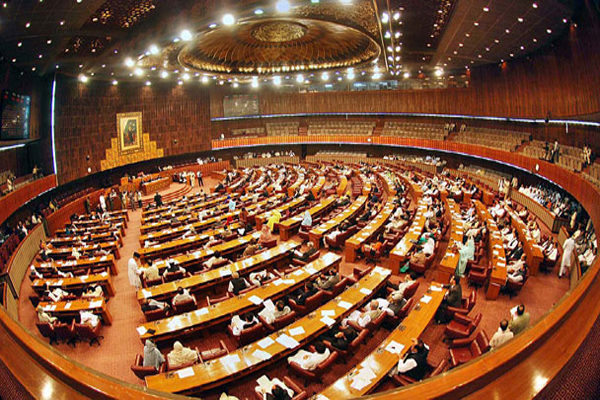The National Assembly on Friday passed nine bills, including the “Income Tax (Amendment) Bill, 2024” and the “Anti-Dumping Duties (Amendment) Bill, 2025,” in a session that also saw the introduction of several private members’ bills.
The meeting, which saw a blend of government and private members’ proposals, was chaired by Speaker Raja Pervez Ashraf.
The “Income Tax (Amendment) Bill, 2024,” which had previously been introduced in the form of an ordinance, aims to address issues faced by taxpayers regarding higher tax rates on income from federal government securities. It also seeks to rationalise the tax rate on business income for banking companies.
The “Civil Servants (Amendment) Bill, 2025” was also passed. This bill introduces a new requirement for civil servants of BS-17 and above to declare their domestic and foreign assets, as well as those of their spouses and dependent children, to be filed digitally with the Federal Board of Revenue (FBR). The asset declarations will be made publicly available.
The private members’ bills included the “Trade Organizations (Second Amendment) Bill, 2025” and the “Islamabad Capital Territory Child Marriage Restraint Bill, 2024,” both of which were also passed. The Trade Organizations bill focuses on the tenure of office bearers in trade organizations, ensuring smoother operations for these bodies.
The government also rejected proposals from the Ministry of Commerce to increase the number of tariff slabs for the upcoming budget, opting instead for a four-slab model.
The “Anti-Dumping Duties (Amendment) Bill, 2025,” meanwhile, seeks to give retrospective effect to certain provisions of the Anti-Dumping Duties Act, 2022, with the intention of covering the period from the 2020-21 financial year.
This amendment focuses on Chinese-funded projects in Gwadar, including the Pak-China Friendship Hospital and the New Gwadar International Airport, which were subjected to anti-dumping duties during FY 2020-21 and 2021-22.
The bill aims to address concerns that these duties were not covered by the Chinese grant funding.
Despite opposition from some members, the bills were passed with minimal disruption. The passage of these bills marks a significant step forward in the government’s legislative agenda, with implications for taxation, public sector transparency, and trade organisation operations.




